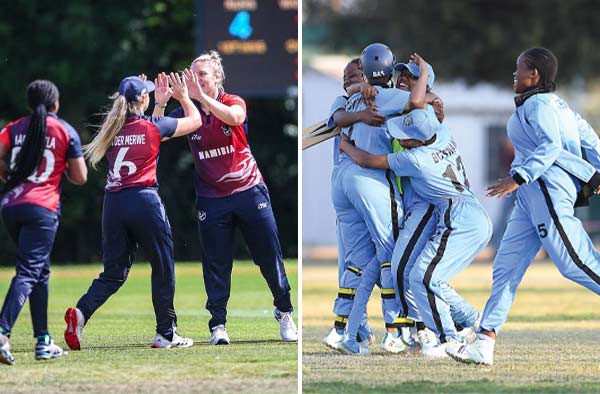Empowered by a transformative grant from the International Cricket Council (ICC) that awarded full T20I status to all its members in 2018, six African nations – Botswana, Namibia, Sierra Leone, Mozambique, Malawi, and Lesotho – participated in the thrilling 2018 Botswana 7s Women’s T20I cricket tournament for the first time ever, marking their debut, marking a pivotal moment for women’s cricket in Africa. This vibrant T20I tournament, hosted by Botswana, became a crucible for regional competition, bringing together seven nations for a week of high-octane cricket.

Held in Botswana, the tournament featured teams from the host nation (Botswana), Namibia (the eventual champions), Sierra Leone (runners-up), Mozambique, Malawi, Lesotho, and Zambia. Notably, all matches, except those involving Zambia due to a player eligibility issue, had T20I status, offering valuable International Cricket Council (ICC) ranking points.
Namibia dominated the tournament statistically as well. They cruised through the group stage with an undefeated record, showcasing their prowess. Their dominance continued into the final where they thoroughly outplayed Sierra Leone. Namibia’s bowlers restricted Sierra Leone to a meagre 80 runs (80/4). This was a commendable effort considering none of the Sierra Leone batters managed to score above 23 runs, and the team’s overall strike rate fell below 60.00. Namibia’s Shiomwenyo Namusha played a crucial role in restricting the runs, conceding only six runs in her four overs with an exceptional economy rate of 1.50.
In response, Namibia chased down the target effortlessly in just 11.1 overs, clinching a convincing nine-wicket victory. Leading the charge for Namibia was their captain, Yasmeen Khan, who was awarded Player of the Match for her knock of 37 runs off 38 deliveries. Namibia’s opening batter, Adri van der Merwe, also played a vital role, remaining unbeaten on 26 runs off 28 deliveries and guiding her team to victory.
While Namibia stole the show, the host nation, Botswana, also performed admirably. They secured a respectable third-place finish by winning three of their group stage matches. Mozambique followed closely behind in fourth with two wins. While Malawi with a lone win finished 5th, the winless campaign of Lesotho, had them finish at the bottom of the standings.
Individual player performances were equally noteworthy. Adri van der Merwe from Namibia, who remained unbeaten in the final, emerged as the Player of the Tournament. Her consistent batting throughout the competition was evident in her impressive tally of 161 runs at a remarkable average of 80.50 and a strike rate of 101.25. However, the leading run scorer was Sierra Leone’s Ann Marie Kamara with 199 runs at an average of 39.80 and a strike rate of 96.60.
On the bowling front, Botswana’s Botsogo Mpedi impressed with her skills, claiming the most wickets in the tournament (14) across six matches. Her bowling prowess was particularly evident in her phenomenal six-wicket haul (6/8) against Lesotho.
The Botswana 7s proved to be a significant initiative by the Botswana Cricket Council. It not only provided a competitive platform for women’s cricket in the region (with Namibia showcasing exceptional dominance statistically) but also served to inspire and accelerate the growth of the sport.
The tournament offered valuable playing experience for all participating teams, boosting the confidence of individual players like Mpedi and van der Merwe, and showcasing the talent within African women’s cricket. By hosting this event, Botswana made a significant contribution to the development of women’s cricket not just within its borders, but across neighbouring African nations as well.